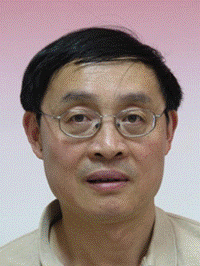Topological properties of Jackie-Rebbi zero-mode
Venue: Room 201, No. 12 Teaching Building, Yuquan Campus
Speaker: Prof. XIE Xin-cheng

Prof. Xie obtained his Ph.D. from the University of Maryland in 1988 and became a faculty member in Department of Physics at Oklahoma State University in USA in 1991 and was named Regents Professor in 2004. He worked as Chief Scientist and Director of Laboratory of Condensed Matter Theory and Computation at the Institute of Physics, Chinese Academy of Sciences from 2005 to 2010. Professor Xie joined Peking University in 2010 as Chair Professor and Founding Director of International Center for Quantum Materials. In 2011 he was appointed as the Dean of School of Physics at Peking University. Professor Xie assumed the role of Divisional Director of Mathematical and Physical Sciences, National Natural Science Foundation of China (NSFC) in 2016, and Vice President of NSFC in 2018.
Professor Xie’s main research interests include quantum Hall effect, quantum transport, topological matter and strongly correlated electron systems. He is an editorial board member of several international peer-reviewed journals, such as a Divisional Associate Editor for Condensed Matter Division of Physical Review Letters (PRL) and the Editor-in-Chief of Science China Physics, Mechanics & Astronomy. He also serves on the international advisory committees of many international conferences and institutes. Professor Xie was elected as a Fellow of American Physical Society in 2008, a Member of Chinese Academy of Sciences in 2015 and a Fellow of The World Academy of Sciences in 2018.
Abstract:
Ever since its first proposal in 1976, Jackiw-Rebbi zero-mode has been drawing extensive attention for its charming properties including charge fractionalization, topologically protected zero-energy and possible non-Abelian statistics. We investigate these properties through the Jackiw-Rebbi zero-modes in quantum spin Hall insulator. Though charge fractionalization is not manifested, Jackiw-Rebbi zero-mode’s zero-energy nature leads to a double-frequency Aharonov-Bohm effect, implying that it can be viewed as a special case of Majorana zero-mode breaking particle-hole symmetry. Such relation is strengthened since Jackiw-Rebbi zero-modes also exhibit non-Abelian braiding properties in the absence of superconductivity, and the symmetry-protected degeneracy of both Jackiw-Rebbi and Majorana zero-modes is proved to be equally important as the topological gap for their non-Abelian statistics.